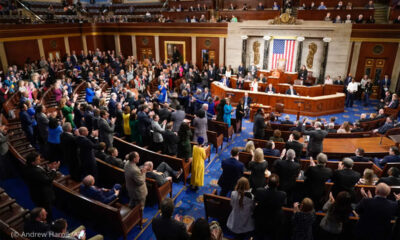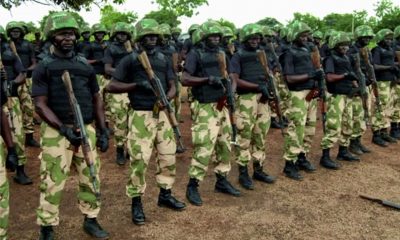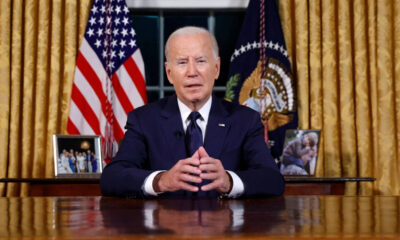International
Biden, Xi seek to ‘manage our differences’ in meeting

NUSA DUA, Indonesia (AP) — President Joe Biden and Chinese President Xi Jinping opened their first in-person meeting Monday since the U.S. president took office nearly two years ago, aiming to “manage” differences between the superpowers as they compete for global influence amid increasing economic and security tensions.
Xi and Biden greeted each other with a handshake at a luxury resort hotel in Indonesia, where they are attending the Group of 20 summit of large economies, before they sat down for what was expected to be a conversation lasting several hours.
“As the leaders of our two nations, we share responsibility, in my view, to show that China and the United States can manage our differences, prevent competition from becoming anything ever near conflict, and to find ways to work together on urgent global issues that require our mutual cooperation,” Biden said to open the meeting.
Xi called on Biden to “chart the right course” and “elevate the relationship” between China and the U.S. He said he was ready for a “candid and in-depth exchange of views” with Biden.
READ ALSO:
- Tinubu not to blame for Afenifere crisis – Keyamo
- Tight Security As Buhari, Osinbajo, Tinubu, Governors Arrive Jos For APC Presidential Flag Off
- LASUSTECH shuts staff school indefinitely over student’s death
Both men entered the highly anticipated meeting with bolstered political standing at home. Democrats triumphantly held onto control of the U.S. Senate, with a chance to boost their ranks by one in a runoff election in Georgia next month, while Xi was awarded a third five-year term in October by the Communist Party’s national congress, a break with tradition.
“We have very little misunderstanding,” Biden told reporters in Cambodia on Sunday, where he participated in a gathering of southeast Asian nations before leaving for Indonesia. “We just got to figure out where the red lines are and … what are the most important things to each of us going into the next two years.”
International
Canada Opens New Express Entry Draw for Nigerian Workers, Others

Canada Opens New Express Entry Draw for Nigerian Workers, Others
The Government of Canada has announced a new Express Entry draw, offering fresh opportunities for skilled workers from Nigeria and other eligible countries to obtain Canadian permanent residency. The latest draw underscores Canada’s ongoing efforts to attract global talent to meet labour market demands and support economic growth.
According to Immigration, Refugees and Citizenship Canada (IRCC), the new round of invitations targets candidates under the Federal Skilled Worker Program, the Federal Skilled Trades Program, and the Canadian Experience Class, all managed through the Express Entry system. Eligible applicants are ranked through the Comprehensive Ranking System (CRS), with higher scores increasing the likelihood of receiving an Invitation to Apply (ITA) for permanent residency.
READ ALSO:
- South Korea Former President Park Geun-hye Jailed for Life Over Martial Law Attempt
- Hisbah Arrests Nine Muslims for Allegedly Breaking Ramadan Fast in Kano
- Ondo Monarch Killed as Bandits Strike Akure North
This development is particularly significant for Nigerian workers, who have increasingly sought opportunities in Canada due to strong employment prospects, favourable immigration policies, and the country’s high standard of living. Applicants are advised to update profiles, review eligibility criteria, and submit supporting documents promptly, as IRCC draws often target candidates with competitive CRS scores.
The Express Entry system remains a primary pathway for skilled migration, with Canada aiming to meet ambitious immigration targets in 2026. The federal government has emphasized that these draws are part of a broader strategy to boost the Canadian workforce while supporting diversity and inclusion within the country’s labour market.
Canada has historically welcomed Nigerians in sectors including information technology, healthcare, engineering, and skilled trades, and this draw continues to open doors for qualified professionals seeking permanent residence.
Launched in 2015, Express Entry is a points-based immigration system designed to attract highly skilled foreign workers. Applicants are evaluated on education, work experience, language proficiency, and other factors. Candidates with the highest CRS scores are invited to apply for permanent residency, allowing them to live and work anywhere in Canada.
Express Entry draws occur regularly, and eligibility requirements may vary by program and draw. Skilled workers from Nigeria and other countries are encouraged to maintain updated profiles to maximize chances of selection.
Canada Opens New Express Entry Draw for Nigerian Workers, Others
International
South Korea Former President Park Geun-hye Jailed for Life Over Martial Law Attempt
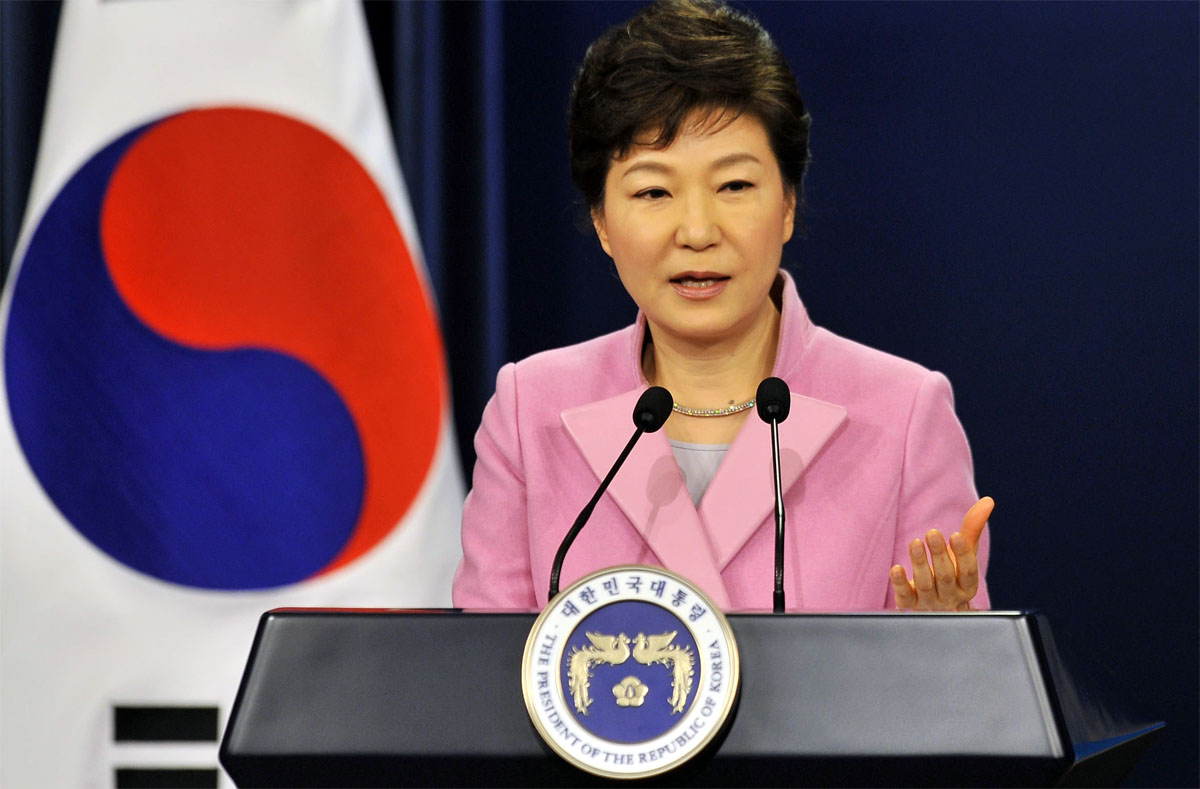
South Korea Former President Park Geun-hye Jailed for Life Over Martial Law Attempt
Former South Korean President Park Geun-hye has been sentenced to life imprisonment for her role in attempting to impose martial law during a political crisis, marking one of the most significant rulings in the country’s modern democratic history.
The Seoul Central District Court found Park guilty of abusing presidential powers, attempting to suppress dissent, and manipulating state security forces for political purposes. Prosecutors argued that her actions threatened the constitutional order and undermined democratic governance.
Park, South Korea’s first female president, was impeached in 2017 following mass protests triggered by corruption scandals and abuse-of-office allegations. The former leader has faced multiple prosecutions over the years, including charges of bribery, influence-peddling, and illegal control of state institutions.
The court emphasized that her attempt to enforce martial law was a severe violation of South Korea’s democratic principles. Legal experts have described the ruling as a clear message that executive overreach will not be tolerated, even at the highest levels of government.
READ ALSO:
- Hisbah Arrests Nine Muslims for Allegedly Breaking Ramadan Fast in Kano
- Ondo Monarch Killed as Bandits Strike Akure North
- LP Crisis Deepens as Abure Faction Rejects Otti’s Reconciliation Call
The sentence comes amid growing international attention on South Korea’s judicial independence. Analysts say the life term reinforces accountability in the country’s political system while serving as a deterrent to future leaders who might consider circumventing democratic institutions. Park may appeal the verdict to the South Korean Supreme Court, prolonging legal proceedings.
Human rights groups have praised the transparent judicial process, noting that fairness and due process remain critical, especially in politically sensitive cases. Meanwhile, the decision has reignited public debate over the balance of power between the presidency and democratic institutions in South Korea.
Background: Park Geun-hye and Martial Law Controversy
Park Geun-hye, daughter of former military ruler Park Chung-hee, governed South Korea from 2013 until her impeachment in 2017. Allegations during her tenure included attempts to deploy martial law powers to suppress opposition and consolidate control over government agencies. These efforts, combined with corruption and bribery scandals, culminated in her removal from office and subsequent criminal trials.
The case has been widely cited as a landmark test of South Korea’s democratic accountability and judicial independence, illustrating the nation’s commitment to prosecuting high-level abuses of power.
South Korea Former President Park Geun-hye Jailed for Life Over Martial Law Attempt
International
Israeli Airstrikes Kill 12 in Gaza as Violence Persists Despite Ceasefire
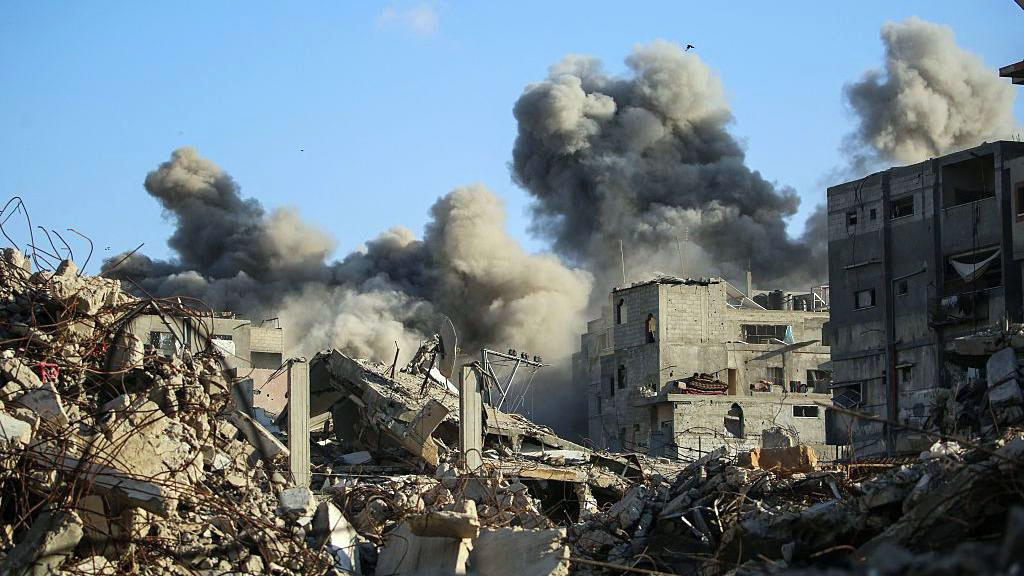
Israeli Airstrikes Kill 12 in Gaza as Violence Persists Despite Ceasefire
At least 12 Palestinians have been killed in Israeli airstrikes across the Gaza Strip, the territory’s civil defence agency reported on Sunday, marking one of the deadliest days since a fragile ceasefire was implemented. The strikes hit multiple areas, including Jabalia refugee camp in northern Gaza and the southern city of Khan Younis, leaving several others injured.
The Gaza Civil Defence, responsible for rescue and emergency operations under Hamas, said one airstrike struck a tent sheltering displaced civilians in Jabalia, killing at least five people and wounding others. Another strike in Khan Younis also claimed five lives, while additional shelling in Beit Lahia and western Gaza City caused further casualties. Local authorities said most victims were civilians, including families displaced by previous attacks.
READ ALSO:
- FBI Probe Continues as Ex‑Church Minister Who Confessed to Child Abuse Remains Free
- Presidency Dismisses El-Rufai’s Thallium Claim as Diversion From N432bn Probe
- Ghana Moves to Extradite Russian Man Over Secret Sex Video Scandal
The Israel Defence Forces (IDF) said its operations targeted armed militants and underground infrastructure allegedly used to launch attacks, describing the strikes as a response to ceasefire violations. Palestinian authorities condemned the strikes as a massacre and a breach of the truce, while international observers expressed concern over the continuing civilian casualties.
Since the U.S.-brokered ceasefire in October 2023, tensions in Gaza have remained high, with sporadic clashes and violations on both sides. Gaza health authorities report that over 600 Palestinians have been killed and more than 1,600 injured by Israeli strikes since the truce took effect. Humanitarian organisations warn that repeated airstrikes have devastated infrastructure, leaving displaced families vulnerable and worsening living conditions.
International observers note that the ongoing violence threatens reconstruction efforts and regional stability. With limited access for media and aid agencies, verifying casualty figures remains difficult, though reports consistently highlight the severe impact on civilians and displaced families.
The Gaza civil defence called on residents to stay vigilant, avoid military targets, and seek safety as authorities continue to respond to emergency situations across the territory. The situation underscores the fragility of the ceasefire and the urgent need for renewed diplomatic efforts to prevent further civilian casualties.
Israeli Airstrikes Kill 12 in Gaza as Violence Persists Despite Ceasefire
-

 News3 days ago
News3 days agoSaudi Arabia Confirms Sighting of Ramadan Crescent, Fasting Begins Wednesday
-

 metro2 days ago
metro2 days agoLagos Woman Shares Ordeal After Alleged Rape, Sparks Nationwide Outcry
-

 News2 days ago
News2 days agoRamadan Begins in Nigeria as Sultan Confirms Crescent Sighting
-

 metro2 days ago
metro2 days agoSeven Killed in Horrific Crash at Ota Toll Gate
-

 International17 hours ago
International17 hours agoCanada Opens New Express Entry Draw for Nigerian Workers, Others
-

 metro3 days ago
metro3 days agoDeadlock at National Assembly as House Snubs Electoral Act Bill Meeting on E-Transmission Clause
-

 News2 days ago
News2 days agoKorope Drivers Shut Down Lekki–Epe Expressway Over Lagos Ban (Video)
-

 Health2 days ago
Health2 days agoRamadan Health Tips: Six Ways to Stay Hydrated While Fasting



